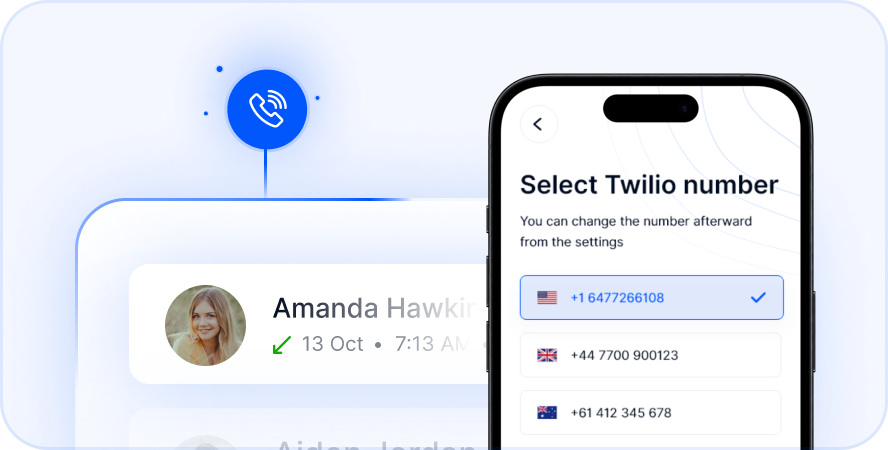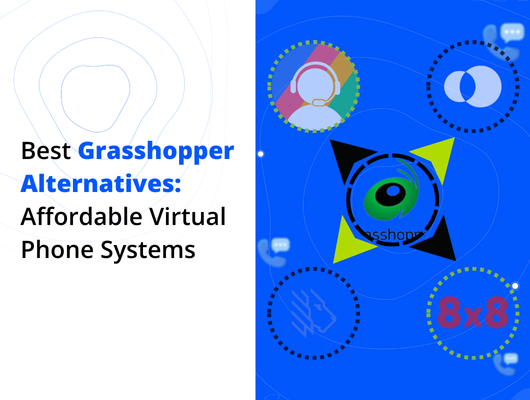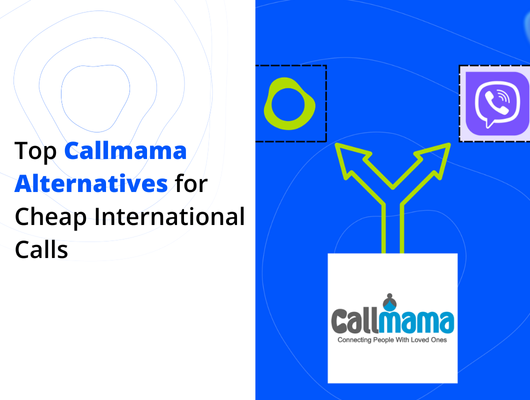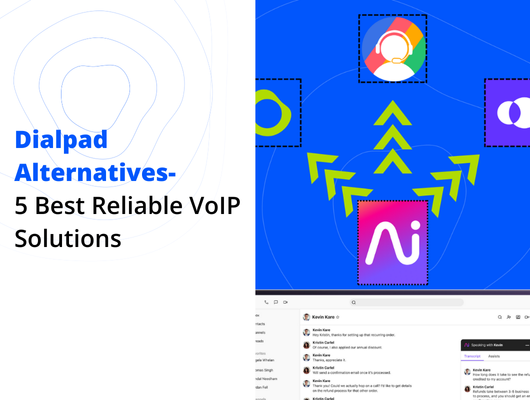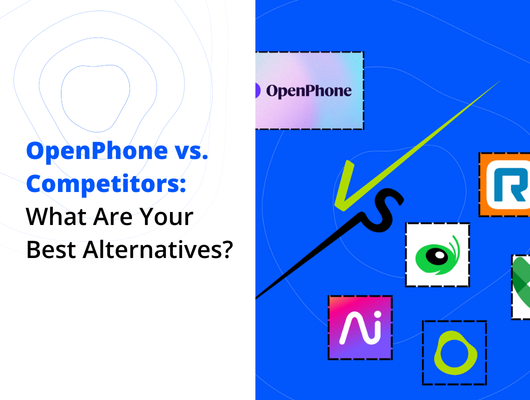
Effective business communication is essential for success. While virtual phone systems like MightyCall are popular, they may not always perfectly align with every business’s specific needs, budget, or growth trajectory. Many companies look for alternatives offering different feature sets, more flexible pricing, or better scalability. Finding the right platform can significantly impact team productivity, customer satisfaction, and overall operational efficiency. Exploring other top-rated options is a smart strategic move.
Finding the ideal communication tool requires careful consideration of various factors. This guide explores some of the best MightyCall alternatives available today. We will compare their features, pricing, and suitability for different business sizes and types. The goal is to help you find a virtual phone system that truly enhances your business operations and supports your long-term goals. You can learn more about the general benefits of virtual phone systems and cloud telephony solutions in this detailed article on business VoIP.
Why Explore MightyCall Alternatives?
MightyCall offers a solid virtual phone system, especially for small and medium-sized businesses. However, it might not be the perfect fit for everyone. Businesses often seek alternatives for specific reasons. These can include needing more advanced features for complex workflows.
Pricing structure is another common reason. Some businesses might find MightyCall’s plans don’t offer the best value for their usage patterns or team size. They may look for per-user pricing, tiered plans, or even pay-as-you-go options that better match their budget.
Scalability can also be a concern. As a business grows rapidly or anticipates future expansion, it needs a system that can easily accommodate more users, numbers, or advanced call routing. Some alternatives might offer more robust scaling capabilities. Specific integration needs with CRM, helpdesk, or other software can also drive the search for a different provider that offers seamless connections to existing tools. Customer support quality and availability can also play a role in the decision-making process.
Key Factors When Choosing a Virtual Phone System
Selecting the right virtual phone system involves evaluating several critical aspects. Focusing on these factors will help ensure the platform meets your current needs and supports future growth. Consider your budget, required features, ease of use, and how well it integrates with your existing tools.
Cost and Pricing Models
Evaluate the different pricing models offered by providers. Some charge per user per month, which is common. Others offer tiered plans based on included features or minutes. Look for transparent pricing without hidden fees. Consider the total cost of ownership, including setup fees or extra charges for specific features like international calls or additional numbers. Providers like Telfon offer flexible options, including monthly, quarterly, and yearly plans, which can provide significant savings depending on your commitment.
Essential Features Checklist
Identify the features crucial for your business operations. Basic features typically include voicemail, call forwarding, and caller ID. More advanced needs might involve call recording, voicemail-to-text transcription, auto-attendants (IVR), conference calling, and video conferencing. Consider specific features like bulk SMS messaging, WhatsApp integration for business communication, or the ability to manage multiple international numbers simultaneously. CRM integration is vital for sales and support teams. Analytics and reporting tools provide insights into call volumes and agent performance.
Scalability and Growth Potential
Choose a system that can easily grow with your business. If you plan to add more users or locations, ensure the platform supports this without complex configuration or prohibitive costs. Look for systems that allow you to easily add or remove lines and features as needed. The ability to manage users and numbers centrally is important for growing teams. A scalable system avoids the need to switch providers again in the near future.
Ease of Use and Setup
The platform should be intuitive for both administrators and end-users. Complex setup processes can lead to delays and frustration. Look for systems with a user-friendly interface, clear documentation, and easy mobile or desktop app access. Quick onboarding for new employees is also a significant advantage. A system that doesn’t require extensive technical knowledge to manage saves time and resources.
Integration Capabilities
Assess how well the virtual phone system integrates with the other tools your business uses daily. Seamless integration with popular CRMs like Salesforce or HubSpot is often essential for sales and marketing teams. Integration with helpdesk software improves customer support workflows. API access can be important for businesses with unique integration needs. Check which specific versions or tiers of other software the provider supports integration with.
Customer Support and Reliability
Reliable customer support is crucial if you encounter any issues. Look for providers offering support through multiple channels, such as phone, email, or live chat. Check their support hours and average response times. System reliability and uptime are also critical factors. Downtime can mean lost business and frustrated customers. Look for providers with a proven track record of stability and performance.
Top MightyCall Alternatives in Detail
Several powerful virtual phone systems offer compelling alternatives to MightyCall. Each platform brings a unique set of features, pricing, and ideal use cases. Understanding these differences will help you determine which one best aligns with your specific business requirements.
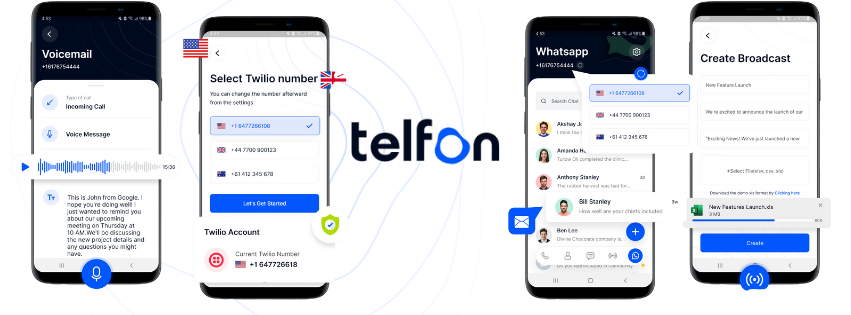
Telfon
Telfon stands out as a highly versatile and cost-effective VoIP solution suitable for both individuals and businesses. It offers a comprehensive feature set typically found in more expensive systems at a significantly lower price point. Telfon is an excellent choice for businesses needing international reach, flexible number management, and robust messaging capabilities. Its user-friendly interface makes it accessible for teams of all sizes.
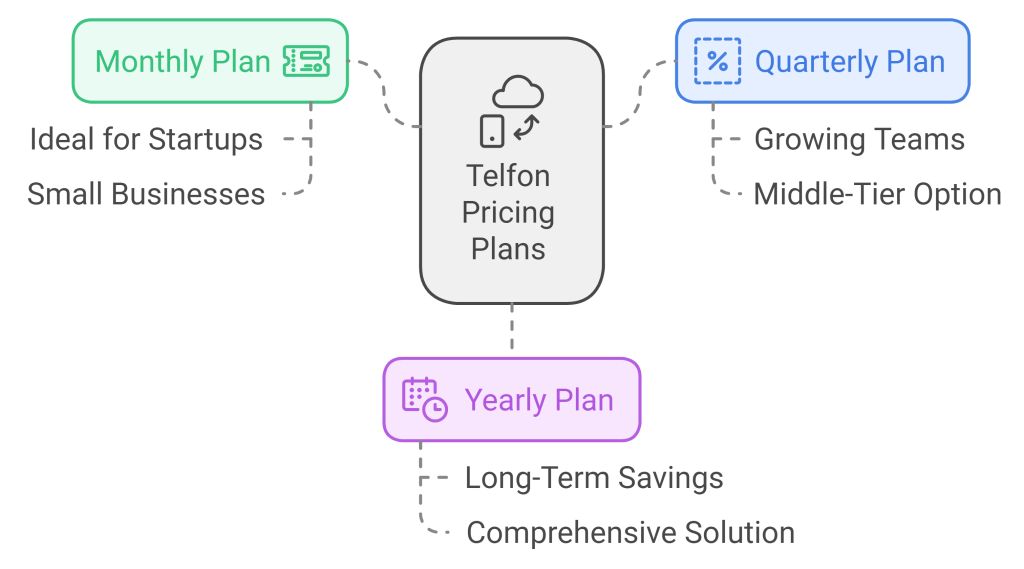
Key Features:
- International calls to over 180+ countries.
- Purchase and manage multiple virtual numbers simultaneously.
- Call recording and voicemail with voicemail-to-text transcription.
- Send and receive SMS messages.
- Bulk SMS and broadcast messaging features.
- WhatsApp integration, including support for multiple accounts.
- User management and detailed analytics for business plans.
- Integration with popular CRMs like Salesforce and HubSpot.
- Available on App Store, Google Play, and Chrome Web Store.
Pricing:
- Starts as low as $4.99/month.
- Quarterly ($9.99) and Yearly ($49.99) plans available for further savings.
- Pay-as-you-go pricing model allows cost optimization.
Ideal For:
Individuals needing a second number, HR personnel, sales executives, travelers, startups, small businesses, and companies requiring affordable international calling and advanced messaging features.
Other MightyCall Alternatives to Consider

2. CallHippo
CallHippo is a popular cloud-based phone system known for its easy setup and intuitive interface. It’s designed to help businesses manage their calls efficiently and gain insights through analytics. CallHippo provides features suitable for sales, support, and marketing teams.
Key Features:
- Local and toll-free numbers.
- Real-time call analytics and reporting.
- Call forwarding, routing, and queue management.
- Integration with CRM tools like Zoho and HubSpot.
- Automatic call distribution (ACD).
Pricing:
- Bronze Plan: $16/user per month.
- Silver Plan: $24/user per month.
- Platinum Plan: $40/user per month.
Ideal For:
Growing businesses focused on improving call management, tracking performance, and integrating with CRM systems for better lead and customer handling.

3. Grasshopper
Grasshopper is specifically tailored for entrepreneurs and small businesses seeking a professional phone presence without the complexity of a full-fledged PBX system. It offers core features like dedicated business numbers, extensions, and voicemail. Grasshopper keeps it simple and affordable for solopreneurs or small teams.
Key Features:
- Dedicated business numbers (toll-free, local, vanity).
- Unlimited calls and texts within the US and Canada.
- Call forwarding to any phone.
- Voicemail with transcription.
- Business texting capabilities.
Pricing:
- Solo Plan: $29/month (1 number, 3 extensions).
- Partner Plan: $49/month (3 numbers, 6 extensions).
- Small Business Plan: $89/month (5 numbers, unlimited extensions).
Ideal For:
Solo entrepreneurs, freelancers, and very small businesses that need a simple, reliable

4. RingCentral
RingCentral is a comprehensive unified communications platform that goes beyond just phone calls. It integrates voice, video meetings, team messaging, and contact center solutions. It is a robust option well-suited for larger businesses and enterprises needing an all-in-one communication suite.
Key Features:
- Unlimited voice calls, video conferencing, and team chat.
- Advanced call management features (routing, queuing, monitoring).
- Automatic call recording and analytics.
- Extensive integrations with hundreds of business applications.
- Multi-level auto attendant.
Pricing:
- Essentials: $19.99/user per month.
- Standard: $27.99/user per month.
- Premium: $34.99/user per month.
Ideal For:
Mid-sized to large enterprises looking for a complete cloud communfied communication solution that includes messaging, video conferencing, and cloud telephony.
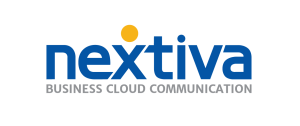
5. Nextiva
Nextiva offers a reliable and feature-rich business communication platform known for its excellent call quality and customer service focus. It provides scalable solutions for businesses needing advanced call routing, CRM capabilities, and powerful analytics, making it strong for customer support and sales teams.
Key Features:
- Unlimited calling within the U.S. and Canada.
- Call recording, voicemail to email, and SMS messaging.
- Integrated CRM and sales productivity tools.
- Conference calling and video meetings.
- AI-powered customer service analytics.
Pricing:
- Basic Plan: $19.95/user per month.
- Professional Plan: $20.95/user per month.
- Enterprise Plan: $27.95/user per month.
Ideal For:
Businesses prioritizing reliable service, robust CRM integration, advsystem with robust CRM integration and customer service features.

6. 8×8
8×8 provides a cloud communication platform combining voice, video, chat, and contact center solutions. It is particularly strong in international calling features, offering unlimited calls to many countries even on lower-tier plans. This makes it a popular choice for businesses with a global presence or international clientele.
Key Features:
- Unlimited voice calls to up to 48 countries.
- HD video meetings and team messaging.
- Advanced contact center capabilities.
- CRM and business application integrations.
- Robust analytics and reporting.
Pricing:
- Express: $15/user per month.
- X2 Plan: $24/user per month.
- X4 Plan: $44/user per month.
Ideal For:
Businesses with international calling needs, those requiring integrated communi
Comparison Table of MightyCall Alternatives
To help you easily compare the key features and pricing of these alternatives, here’s a breakdown in the form of a table:
| Virtual Phone System | Starting Price (Per User/Month) | Key Features | Ideal For |
|---|---|---|---|
| Telfon | $4.99 | Multi-number, Voicemail, SMS, Integrations | Small to medium-sized businesses |
| CallHippo | $16.00 | Real-time analytics, CRM integrations | Growing businesses |
| Grasshopper | $29.00 | Toll-free numbers, Call forwarding | Small businesses, Entrepreneurs |
| RingCentral | $19.99 | Video meetings, Call recording | Large enterprises, Corporations |
| Nextiva | $19.95 | AI analytics, SMS, Conference calling | Customer support and sales teams |
| 8×8 | $15.00 | Unlimited international calling, Video chat | Global businesses, Contact centers |
How to Choose the Best MightyCall Alternative for Your Business
Selecting the most suitable virtual phone system requires a thoughtful process. It’s not about finding the platform with the most features, but the one that aligns best with your unique operational needs and budget. Consider the points discussed earlier, such as pricing, features, scalability, ease of use, integrations, and support.
Start by clearly defining your business’s specific communication requirements. How many users will need access? Do you make international calls frequently? What existing software systems absolutely need to integrate with your phone system? Answering these questions provides a clear framework for evaluation.
Next, explore the alternatives based on your defined needs. Take advantage of free trials offered by many providers to test the platform firsthand. Assess the user interface, call quality, and the responsiveness of customer support during the trial period. Compare not just the listed price, but the overall value offered by each plan. For instance, a slightly higher per-user cost might be justified by included features you would pay extra for elsewhere.
Finally, consider the provider’s reputation and reliability. Read reviews and look for information on their network uptime and security measures. Choosing a robust and dependable platform ensures uninterrupted communication, which is vital for business continuity and customer satisfaction. The right virtual phone system should be a tool that streamlines your operations and helps you achieve your business goals.
Frequently Asked Questions
Q1. Can I keep my existing business phone number when switching providers?
Yes, you can usually “port” your existing business phone number. This process, where your new provider works with your old carrier, typically takes a few days to a couple of weeks. Crucially, do not cancel your old service until the porting is complete.
Q2. How quickly can a new virtual phone system be set up?
Basic setup for small businesses can be done in minutes to a few hours using web/mobile apps. More complex systems with advanced features might take a few days to configure.
Q3. Are virtual phone systems secure?
Reputable providers prioritize security through encryption, secure data centers, and regulatory compliance. User practices like strong passwords also contribute to overall security. Choose a provider transparent about their security measures.
Q4. What essential features should a small business look for?
Essential features include a professional business number (local/toll-free), call forwarding to mobiles, voicemail (with transcription), and business hours settings. Auto-attendants, multiple extensions, business texting, and basic call analytics are also highly beneficial. Affordability and ease of use are key.
Q5. How does pricing compare between MightyCall and its alternatives?
When evaluating alternatives, consider essential features, pricing structure, ease of use, and integration capabilities. The “perfect fit” depends on your specific needs, whether for advanced enterprise features, international calling, or an affordable solution for a small team. Comparing and testing options is crucial.
Evaluate the alternatives carefully, considering factors like essential features, pricing structure, ease of use, and integration capabilities. Whether you need advanced enterprise features, specific international calling options, or a highly affordable yet feature-rich solution for a small team, there is likely a virtual phone system that is the perfect fit. Taking the time to compare and test different options will lead you to the communication tool that empowers your business to thrive.



